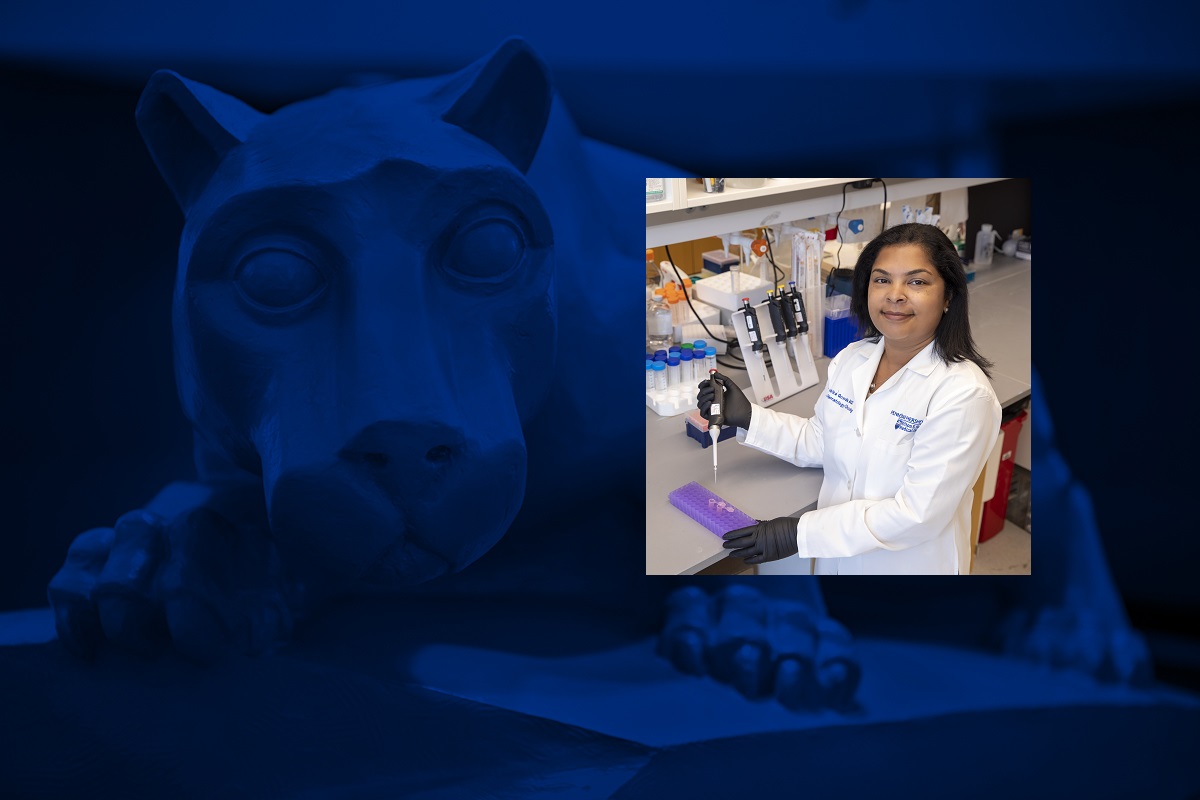Penn State College of Medicine, Beat Childhood Cancer Research Consortium and Four Diamonds launch clinical trial that aims to combat solid tumors

In a step toward fighting solid tumors in children and young adults, Penn State College of Medicine, the Beat Childhood Cancer Research Consortium and Four Diamonds, along with Senhwa Biosciences, Inc. are launching a pioneering clinical trial. The study aims to evaluate the investigational drug, silmitasertib, in combination with FDA-approved drugs for solid tumors. This innovative trial seeks to establish a recommended dose of silmitasertib in combination with chemotherapy and assess the safety, tolerability and efficacy in patients with cancer, with a focus on neuroblastoma, Ewing sarcoma, osteosarcoma, rhabdomyosarcoma, and liposarcoma.
“This clinical trial is a critical piece in understanding if the new medicine is safe to use in children as well as the mechanism of how the medicine works against the tumor cells,” said Dr. Chandrika Behura, study chair, Four Diamonds researcher and associate professor of pediatrics at the College of Medicine. “It is very important to develop the right combination of medicines that can be the most toxic to cancer cells, but the least harmful to the normal cells around them.”
The study is projected to enroll up to 114 participants nationwide through the Beat Childhood Cancer Research Consortium member hospitals. By evaluating the safety and effectiveness of the study treatments based on individual responses and duration of disease control, the trial aims to develop novel therapeutic approaches. More details about the study can be found here, NCT06541262.
Science in 60 Seconds: Meet Dr. Behura and other experts
“We are thrilled to be able to move this important research forward on a larger scale,” said Dr. Giselle Sholler, division chief of pediatric hematology/oncology and director of pediatric oncology research at the College of Medicine and chairperson of the Beat Childhood Cancer Research Consortium. “The insights gained from this trial will help not only local patients and their families but can lead to new therapies that can help children throughout the US and internationally.”
With the College of Medicine serving as its home, the Beat Childhood Cancer Research Consortium is a worldwide network of more than 50 universities and children’s hospitals focused on saving lives and helping the Children’s Hospital make a lasting difference around the world. Funding for this clinical trial is provided by the Beat Childhood Cancer Foundation and the Little Warrior Foundation. Funding for Behura’s research which led to the clinical trial was provided by Four Diamonds.
“This is the culmination of the work of many people over the years,” said Suzanne Graney, executive director of Four Diamonds. “Without the dedication of our physician-scientists and the generosity of our donors and community, this kind of essential work to improve treatments with an ultimate goal of curing cancer would not be possible.”
The pediatric cancer care specialists at Penn State Health Children’s Hospital, Beat Childhood Cancer Research Consortium hospitals and researchers at the College of Medicine are dedicated to turning groundbreaking discoveries into lifesaving treatments for childhood cancer.
“By expanding our research and increasing clinical trials, we are exploring immunotherapy, cellular therapy and precision medicine to deliver the most optimized care to each unique patient,” said Dr. Yatin Vyas, chair of the Department of Pediatrics at the Children’s Hospital, and vice president of Penn State Health Children’s.
“We are greatly honored to collaborate with the Penn State College of Medicine and Beat Childhood Cancer Research Consortium, which have been diligently fighting childhood cancers by infusing invaluable resources from over 50 universities and children’s hospitals across the United States for the clinical study,” said Jin-Ding Huang, PhD, CEO of Senhwa Biosciences, Inc. “We appreciate for having the opportunity of providing Silmitasertib as a potential effective treatment and look forward to realizing its therapeutic value in this urgently needed field for childhood cancers though this study”.
For more information about the trial, contact Beat Childhood Cancer Research Consortium at BCCEnroll@pennstatehealth.psu.edu.
If you're having trouble accessing this content, or would like it in another format, please email Penn State Health Marketing & Communications.
